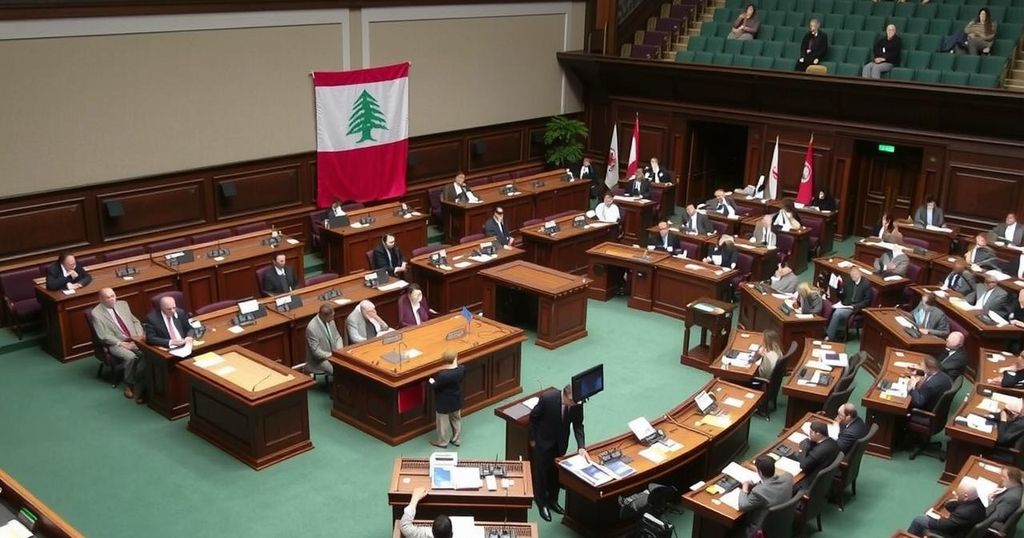World news
ASIA, CENTRAL ASIA DEPARTMENT, ECONOMIC SANCTIONS, ELIAS AL - BAYSARI, FRANGIEH, GENERAL SECURITY AGENCY, GOVERNANCE, HEZBOLLAH, IRAN, ISRAEL, JIHAD AZOUR, LEBANON, MICHEL AOUN, MIDDLE EAST, NORTH AMERICA, POLITICS, PRESIDENTIAL ELECTION, SAUDI ARABIA, SECURITY, SUL, UNITED STATES
Sofia Rodriguez
0 Comments
Lebanon Parliament Moves to Elect President After Extended Vacancy
Lebanon’s parliament is attempting to elect a new president after a two-year gap following former President Michel Aoun’s term. Army commander Joseph Aoun is the leading candidate, endorsed by key regional powers, despite constitutional challenges he faces. The ongoing political deadlock highlights Lebanon’s complex governance issues, necessitating a stable leadership to address the country’s economic troubles.
Lebanon’s parliament is set to convene in an attempt to elect a new president after a two-year void following the term of former President Michel Aoun, which concluded in October 2022. The army commander Joseph Aoun has emerged as the leading candidate due to his perceived support from both the United States and Saudi Arabia. Despite the challenges posed by Lebanon’s complicated political framework, including a history of failed presidential elections, there appears to be a renewed sense of hope for a successful vote this time around.
Aoun’s candidacy has gained traction particularly after his opponent, Suleiman Frangieh—backed by Hezbollah—withdrew and endorsed him. However, Aoun faces significant constitutional hurdles as sitting army commanders are traditionally barred from the presidency. This rule has been bypassed in the past, but it means that Aoun will require a two-thirds majority to secure the presidency even in subsequent voting rounds.
Additionally, other candidates are vying for the position, including Jihad Azour, a former finance minister with experience at the International Monetary Fund, and Elias al-Baysari, who currently heads Lebanon’s General Security agency. The next president will be pivotal in appointing a permanent prime minister and cabinet, essential for addressing the multitude of crises that have beset the country subsequent to the Israel-Hezbollah conflict and an ongoing economic downturn.
Lebanon is experiencing a prolonged political deadlock due to its sectarian power-sharing system, which complicates governance and decision-making. This current struggle for presidential election underscores a pattern of instability, with the most recent vacancy lasting over two years. Lebanon’s political landscape is further complicated by external influences, particularly from the United States and regional powers like Saudi Arabia, as the country seeks to recover from both political and economic turmoil. The economic crisis has led to staggering inflation and loss of savings for many citizens, necessitating an effective government to facilitate recovery efforts.
In summary, Lebanon’s parliament is poised to vote on a new president after a significant period of vacancy marked by numerous unsuccessful attempts. The candidacy of Joseph Aoun, supported by international allies, raises hopes for a resolution to the political standstill. Nevertheless, constitutional obstacles remain, and the situation in Lebanon calls for urgent governance to address ongoing crises and implement necessary reforms for economic recovery.
Original Source: www.hindustantimes.com




Post Comment